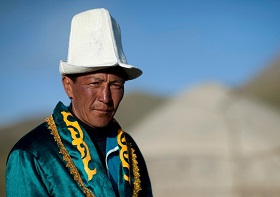On 8 May 2015, Moscow will see the next meeting of the Supreme Eurasian Economic Council, attended by the heads of the EEU states. The Eurasian Economic Union started up under quite difficult geopolitical and geo-economic conditions. Moreover, the EEU countries are demonstrating readiness to resolve the contradictions that arise in a constructive and conflict-free manner.
On 8 May 2015, Moscow will see the next meeting of the Supreme Eurasian Economic Council, attended by the heads of the EEU states. The Eurasian Economic Union started up under quite difficult geopolitical and geo-economic conditions. The confrontation between Russia and the West, the sharp drop in global oil prices and the collapse of the rouble are affecting the Eurasian countries, intensifying the difficult process of joint collaboration between the countries, which naturally arises in the event of such close economic integration. Moreover, the EEU countries are demonstrating readiness to resolve the contradictions that arise in a constructive and conflict-free manner. Indicative in this connection may be considered the example of Russia and Kazakhstan managing, within the scope of calm negotiations, to release the tension over the problem of the falling competitiveness of Kazakh goods in relation to cheaper Russian imports. Consequently, the effectiveness may be asserted of the institutional system set up within the Eurasian Union. Stable development of the EEU is also confirmed by the appeal of the organisation being maintained for potential partners and participants.
For instance, at the impending summit of Eurasian states in Moscow, the focus will be on questions connected with Kyrgyzstan joining the EEU. Bishkek’s ability and desire to resolve all the obstacles to the country moving towards entry into the integration project by the set deadlines are still in doubt. The problem is not so much the Kyrgyz elite’s desire to receive maximum bonuses from Russia and Kazakhstan on entry into the EEU. The vacillations on the part of Almazbek Atambaev and his circle are largely connected with the absence of any precise development strategy for the national economy. Consequently, decisions already taken not only on Eurasian integration but also other issues relating to Kyrgyzia’s economic development may be discarded for subjective reasons. This inconsistency on the part of official Bishkek is adding intrigue on the eve of the Moscow summit. For example, the recent resignation by the Kyrgyz government was perceived by many political scientists as an excuse for dragging out the integration process. At the moment, this is merely supposition on the experts’ part. There are also certain positive signals.
For instance, the renewed economic block headed by Prime Minister Temir Seriev has been endeavouring to have the necessary protocols approved as fast as possible. Yet the relevant documents have not been ratified by the country’s parliament, which calls into serious doubt the possibility of completing Kyrgyzstan’s EEU accession procedure on time. In general, the overall readiness demonstrated by Bishkek to join the integration project does not remove from the agenda a number of issues capable of dragging out the procedure for an indefinite time. Considering that parliamentary elections will be held in the autumn of 2015, the possibility cannot be ignored of ratification of the EEU accession treaty being utilized as a factor in the internal political struggle.
The negotiations on Kyrgyzia’s accession have lasted since 2013 and are sometimes accompanied by attempts at open political bargaining for Bishkek to gain maximally favourable terms and preferences. The process acquired real dynamics only fairly recently. The large-scale, joint work of the Eurasian countries and Kyrgyzia has resulted in the signing of an EEU accession treaty by 9 May 2015. Russia and Kazakhstan have provided Bishkek with USD 300 mln in financial assistance for fulfilling the Road Map for Kyrgyzia’s accession to the EEU and fitting out of the frontiers. In addition, USD 1 bln will be distributed through a specially created Russian-Kyrgyz development fund for extending preferential loans to support small and medium-sized businesses and develop the real sector of the Kyrgyz economy.
The given measures are orientated on the smoothest possible adaptation of the Kyrgyz economy to the conditions of the Eurasian Union. No concrete positive effect of Kyrgyzia’s participation in the integration project will be obvious in the short term, which fact is used by the anti-Eurasian forces relaying in their activities on grants from western funds. It appears important, therefore, to provide the process of Kyrgyzia’s accession to the EEU with quality information support, explaining all the advantages and disadvantages of Eurasian integration for Kyrgyzia. The republic’s accession to the EEU will create conditions for accessing the “four freedoms”, particularly important for the country’s population being freedom of manpower movement throughout the Union. Membership of the EEU provides Kyrgyz labour migrants with a simplified employment procedure, the opportunity to stay longer in the host country, and better living conditions.
In the broader and longer-term format, the advantages of Kyrgyzstan’s accession to the EEU will be manifested in higher macro-economic indicators, including improved payment and trade balances of the country and reduced re-exports of Chinese goods.





